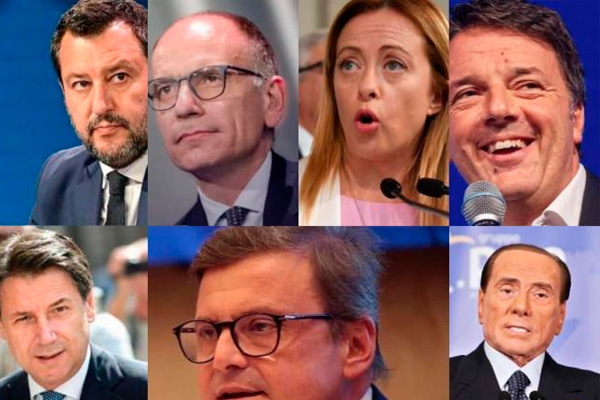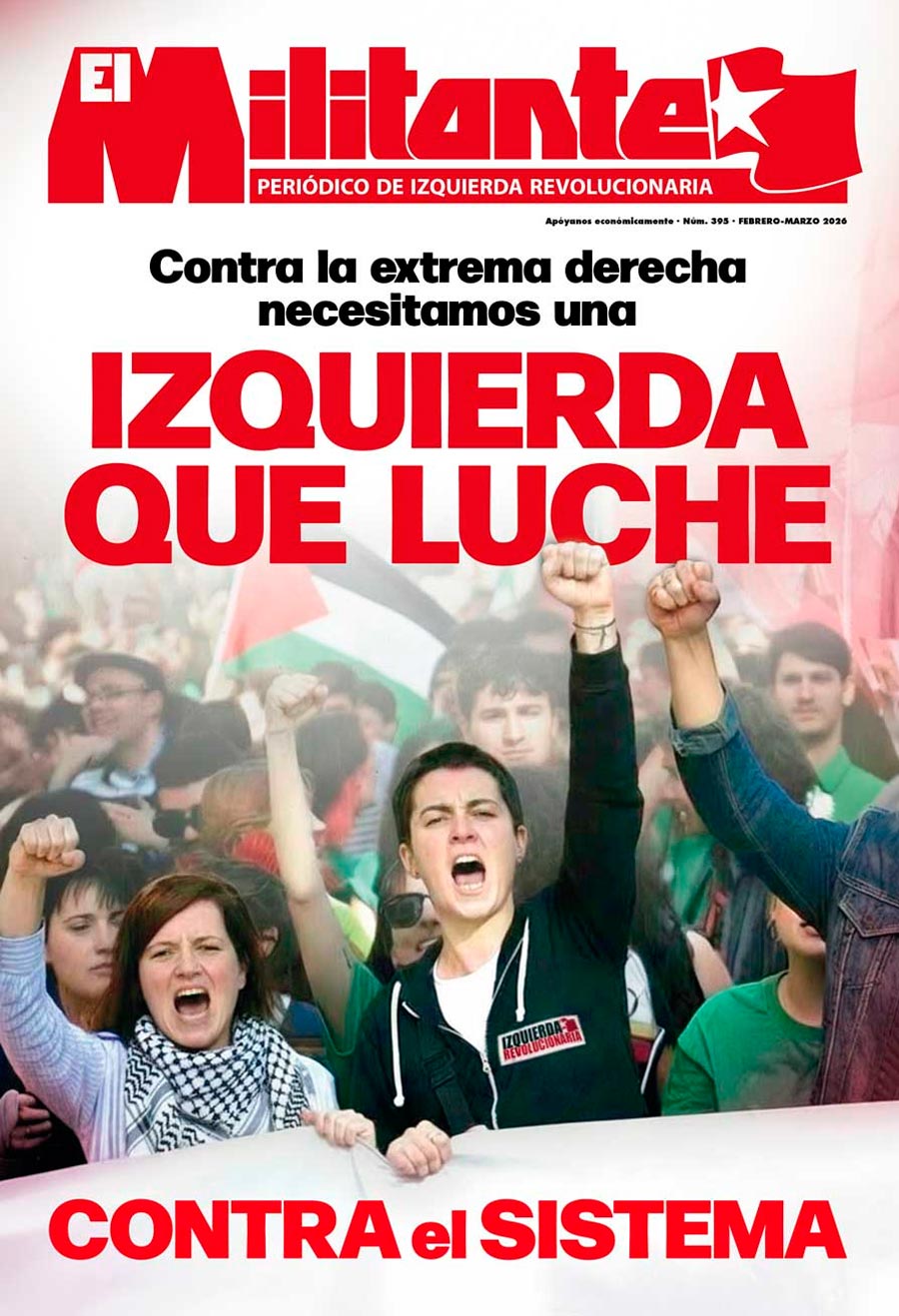The left must be rebuilt with the ideas of Marxism
The Italian elections on the 25 September handed a resounding victory to the far-right candidate Georgia Meloni, who won 26% of the vote. With its reactionary ("God, country and family") and nationalist ("Italy and the Italians first") demagogy, and rhetoric against the financial elites and the bureaucracy of the European Union, and backed by an important sector of the Italian bourgeoisie, the neo-fascist formation Brothers of Italy has profited from being the only political force that has not been part of Mario Draghi's government of national unity.
With almost 44% of the vote, the alliance that unites Brothers of Italy, the League and Forza Italia won 235 of the 400 seats in Parliament and 115 of the 200 senators. For the first time since the end of World War II, there will be a government led by the far right in Western Europe, and presided over by a self-confessed admirer of Benito Mussolini.
The results also show the bankruptcy of the Democratic Party (PD), which with just over 5.3 million votes, 19% of the total, has obtained one of its worst results and lost more than 800,000 votes compared to 2018. This is the consequence of being the foremost defender of pro-capitalist policies, of the counter-reforms and social cuts carried out in the last decades, of the interests of the big economic powers, an enthusiast of NATO in the imperialist war in Ukraine and of the defence at all costs of social peace and class collaboration. Policies that have paved the way for the rise of the far right, and which, together with the deep crisis that has been affecting the Italian left for a long time, have left the working class without political expression at the ballot box.
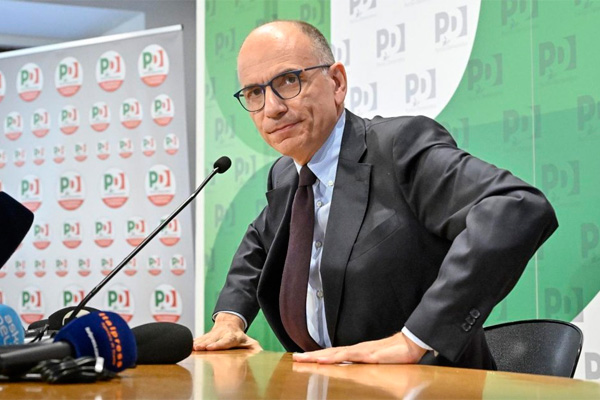
Another of the big losers has been Giuseppe Conte's 5 Star Movement (M5S), which has obtained 4.3 million votes, 15.4%. Although it has managed to do better than predicted by the polls, and remain the leading force in the south, the populist formation has suffered a harsh punishment after being part of all the capitalist governments since 2018. It has lost more than 60% of the 10 million votes with which it won that year's elections, a large part of which has gone to abstention.
Record abstention and discrediting of the system
A crucial factor that stands out in this election was the record level of abstention, 36% (one in three Italians) did not vote, an increase of 9 % compared to 2018. This was even bigger in the south of the country, more impoverished and punished by historical neglect and austerity policies, where abstention did not fall below 40% in any city, reaching 60% in Naples.
The social strata most affected by unemployment and lack of prospects, namely those who endure "barely acceptable" or "bad" economic conditions, abstained -40.5% and 53% respectively. Among young people aged 18 to 35, more than 40% stayed at home last Sunday.
These figures are very revealing of the level of discrediting of the system and of official politics, which is deepening all the time. And also that right-wing populism and the far right - which has already been tested in part with the governments of the League and the M5S - have the criticism and rejection of important sectors of workers and youth who today see no option available with which express their discontent and anger at the ballot box; who despise the politics of the parliamentary "left" which, in essence, defends the interests of the elites; who are blocked by a trade union bureaucracy, like that of the CGIL, which defends social peace above all else and has pleaded for the banker Draghi to remain at the head of the country to avoid new elections.
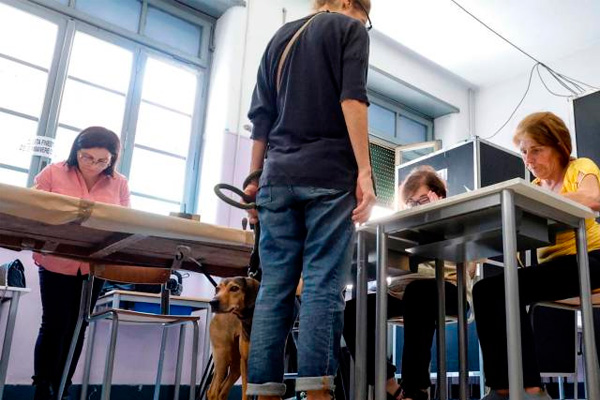
The working class is orphaned politically and electorally, but it has not suffered a historic defeat. This fact is very important. The nature of a government with Meloni at the helm is a very serious threat to democratic rights and social gains - already eroded in the last period. However, it would be wrong to conclude that fascism enjoys mass support in Italy. These elections underline, more than that, the bankruptcy of the reformist "left" and the absence of a militant left that unites the most advanced sectors of the working class and the youth.
On 25 September the right-wing bloc has not widened its base of social support, but it consolidated the reactionary turn of the most politically backward sectors of the middle classes and workers, battered by years and years of crisis. What we have seen is a reconfiguration in the votes of this bloc. Of the 12,300,000 votes (44%) it has obtained, 145,000 more than four years ago, the Brothers of Italy gained more than 5.8 million votes since 2018, going from 1,429,550 (4.3%) to the current 7,300,638 (26%). Salvini's League and Berlusconi's Forza Italia suffer a major setback to the benefit of their ally Meloni.
Salvini, with 2,464,000 votes (just shy of 9%), loses more than 3.2 million voters, half of his electorate, but his debacle is greater when compared to the 33% he achieved in the 2019 European elections. "It was not the figure I had worked for," he declared after it became known that even in the north of the country he is outnumbered by Brothers of Italy. In Leftist fiefdoms, such as Veneto, Meloni doubles Salvini's figures. Forza Italia, with 2,280,000 (8.1%), is also losing more than 2.3 million votes, more than 50% of the already poor results obtained in 2018.
This phenomenon is not exclusive to Italy. Trumpism; the crisis of Gaullism and the advance of the National Front, which contested the second round of the French presidential elections with more than 40% of the votes; the good results of Vox or the recent elections in Sweden, where the neo-fascist party has become the second force (20%), surpassing the traditional right in votes... are some examples of this radicalisation towards the far right of the space that not so long ago was dominated by the traditional conservative parties.
The fact that the European People's Party has given its blessing to the Italian far-right coalition is yet another example that the "traditional" right is not averse to these sectors and reveals the farce of defending "cordons sanitaires" with a supposedly democratic and civilised right to combat fascism.
There is a shift to the right in the ruling class and in the state apparatuses, and growing tendencies towards authoritarianism and Bonapartism, which have been developing for a long time. This is an underlying dynamic that is not unrelated to the worsening economic crisis and social polarisation, and above all to the failure of a reformist left assimilated into the system.

How is a parliamentary "left" that, in the Italian case, has been participating in a government of national unity together with Salvini's ultra-rightists and Berlusconi's reactionaries going to have any credibility?
The arrival of the ultra-right in the Italian government, in the current context of skyrocketing inflation and imperialist war in Ukraine, can lead to a scenario of escalation and outbreaks of class struggle in which sections of the youth and working class draw political and organisational conclusions.
Tensions in the EU
The formation of this government will also add further instability and tensions to the already troubled situation in the European Union. Concerns in Brussels offices and among top EU leaders over the ties and friendship of Meloni's partners - Salvini and Berlusconi - with Putin and Russian capitalists are no secret. A rapprochement between the Italian government and Russia would unbalance the strategy set by the US and NATO in the war in Ukraine, opening a major rift in the Western imperialist bloc.
Berlusconi's statements on television a few days before the elections in support of Putin ("I only wanted to replace Zelensky with good people") are not the fruit of the ravings of a decrepit old man. Nor is a joke the immediate threat issued by European Commission president Ursula von der Leyen : "If things go in the wrong direction, we have instruments". Nor a joke that Salvini - who has been known for his criticism of the EU's sanctions policy against Russia - called it "blackmail" and "interference" in the election campaign, and even called for a protest rally.
In any case, it is necessary to have a method of successive approaches. The European bourgeoisie and the Brussels bureaucracy have not received Meloni's victory with displeasure, and proof of this is the positive behaviour of the stock exchange the day after his victory. The bourgeoisie is not worried about the advance of the far right if its fundamental interests are preserved.
Regarding Meloni, openly positioned with NATO, they are hopeful to be able to bring her to the fold and are confident that they can go ahead with their economic policies and the reforms agreed upon to receive the European recovery funds (almost 200 billion euros). Draghi's friendly attitude towards Meloni during the election campaign, leading some to describe him as her 'protector', is highly significant.
Meloni, with her first gestures, has sent a message along those lines. On election night she said: "It is the time for responsibility (...) the situation towards which Italy and the European Union are heading is particularly complex and requires the contribution of all and a calm climate". In an interview with the daily La Stampa, when asked about her international policy, she replied that "it will be the same as Mario Draghi's", and on 27 September, after Zelenski congratulated her on the election victory via a tweet, Meloni reaffirmed her commitment to support him.
All in all, the situation is wide open and divisions in the ruling class are a global reality. A breakdown of the European Union would further aggravate the current capitalist crisis - even deeper than that of 2008 - but at the same time, the crisis itself strongly fuels "sovereigntist" tendencies and economic nationalism.

Rebuilding a revolutionary left
It would be a mistake for Meloni to think that quiet times lie ahead. She is no longer in opposition, and the gains that her demagogy has made so far in domestic politics will be eroded when she begins to govern. Carrying forward the policies that the bourgeoisie needs (cuts, privatizations, further exploitation of labour...) together with an aggressive and reactionary plan against the most basic democratic and social rights is a recipe for further class struggle.
The international and economic situation will give no respite. The burden of public debt, which already represents 153% of GDP, hangs over the economy; the figures of 9.4% of the population in absolute poverty and inflation above 9% show a grim reality.
The president of Confindustria, the employers' association, has warned that complications with Russian gas supplies and their possible suspension would put 20% of Italian industry at risk of closure. Regional inequalities are widening: according to a study by Svimez 'from an economic point of view the gap is the same as it was after the Second World War: 40 percentage points of per capita income'.
The only way to confront the far-right is the massive, organized and conscious action of the working class and youth. This puts on the table the urgency of rebuilding a mass party of the working class and youth, with revolutionary and anti-capitalist politics.
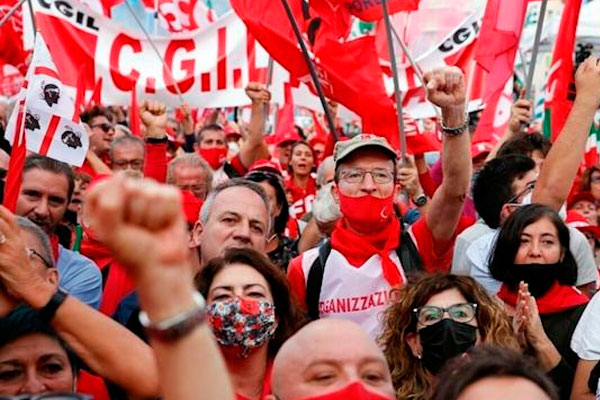
Defending the nationalization of the big monopolies, starting with the electricity and banking industries, without compensation and under workers' control, is essential to reconstitute this party. And together with a socialist programme, the call for mass action to fight fascism through the organized self-defence of the population and the working class, in the factories by defending working-class labour unionism, on the political and ideological terrain by denouncing the catastrophe of the policy of collaboration with the bourgeoisie. Only in this way can the enormous potential of the workers and youth to transform society be put into action.






